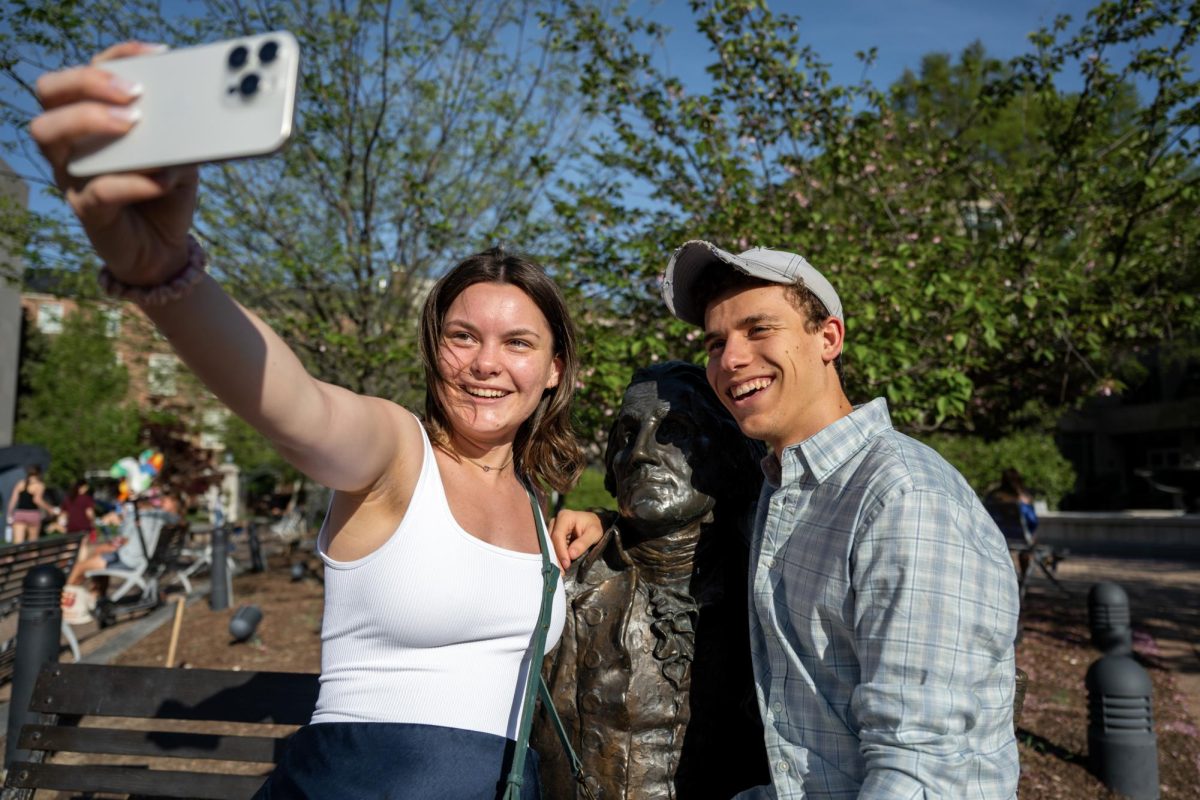Accounts of the blistering heat of Middle Eastern deserts and consequences of combat took the stage Wednesday with author and journalist Sebastian Junger.
Junger, who delved into the world of war journalism in his 20s, discussed his novel, “War,” addressing an audience of more than 100 at Lisner Auditorium as part of the University Writing Program’s First Chapter Forum series.
The program selects one book for the freshman class to read and discuss. Junger detailed the narratives of soldiers and fellow journalists from a civilian writer’s perspective.
After a series of unfulfilling pursuits waiting tables and writing short stories, he delved into war journalism and entered Bosnia during its civil war as a freelance writer with no immediate contacts or experience.
“One of the great things about journalism is you don’t need a degree, you don’t need a certificate, you don’t need permission,” Junger said. “All you need is a plane ticket and a backpack with a sleeping bag. You just go. If you want to report on the war in Syria, all you have to do is get into Syria.”
Dismissing fear as “actually not that hard to deal with,” Junger recounted his experiences as a journalist embedded in active combat, narrowly dodging bullets, encountering the Taliban and, for the first time, witnessing the bodies of dead civilians. From Bosnia and Sierra Leone to Afghanistan, he recalled the experiences and psyches of soldiers with whom he was deeply entrenched in conflict.
“The one thing about war is it doesn’t disappoint. If you think it’s going to transform you in some necessary way, it will. If you think it’s going to be exciting, or is going to somehow make you a man, it will do that,” Junger said. “The problem is it’s also inevitably a lot more than you bargained for.”
Most profoundly, Junger experienced the loss of his fellow journalist and friend, Tim Hetherington, who died while covering violence in Libya. Coupled with the death of Junger’s father, the event catalyzed the renowned author’s decision to abandon war journalism.
“I just got really sad that any of this was happening. It just struck me, ‘What are we doing as a human race?’” Junger said. “Once you connect to that sadness, you’re never really the same again. [War] makes me sad, and I don’t want to feel sad. I’m confident I cannot go back [to war journalism.]”
The selection of his book, titled “War,” came as the number of on-campus student veterans under the Yellow Ribbon Program exceeded 1,000 this year, University President Steven Knapp said.
In lieu of combat journalism, Junger now hopes to uncover what it means to return from war – an experience relatable to the growing student veteran population.
Tommy Davis, president of GW Veterans, said he approved of War as the First Chapter Forum choice.
“It is probably the best snapshot of the war experience itself. He did an excellent job of passing that description on to a civilian audience,” Davis said.






